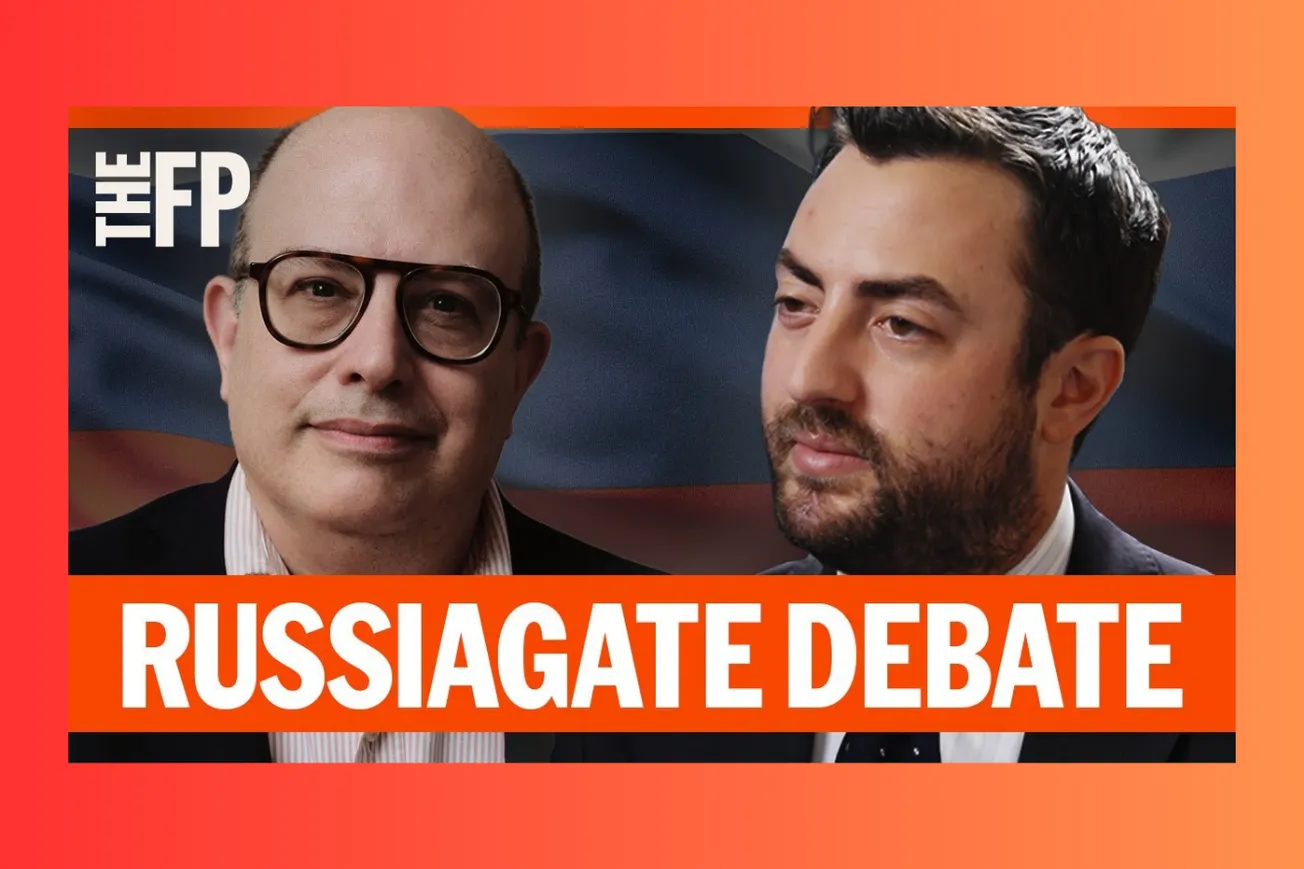Table of Contents
Eight years later, we're still piecing together what really happened during the 2016 election—and the latest batch of declassified documents is stirring up the whole mess again. Tulsi Gabbard's office just released over 100 pages that she claims prove a "treasonous conspiracy" by Obama administration officials. But here's the thing: the reality is way more complicated than either side wants to admit.
Key Takeaways
- New declassified documents reveal significant internal disagreements about the 2016 Intelligence Community Assessment claiming Putin preferred Trump
- Senior CIA analysts handpicked by John Brennan raised serious concerns about including Steel Dossier-related material in official intelligence reports
- The documents confirm what many suspected: the Steel Dossier was considered "garbage intelligence" by CIA professionals, yet still influenced assessments
- Both sides agree Russia hacked and leaked Clinton's emails, but disagree on whether Putin specifically wanted Trump to win
- The scandal illustrates how politicized intelligence undermined public trust in institutions—a problem that persists today
- While some see these revelations as grounds for criminal prosecution, others worry about perpetuating cycles of political revenge
- The documents show John Brennan's troubling pattern of pushing questionable intelligence with political implications
- What emerges isn't necessarily proof of treason, but clear evidence of how badly the intelligence community bungled one of its most consequential assessments
The Assessment That Started It All
Let's start with what everyone can agree on. On January 6, 2017—just two weeks before Trump's inauguration—the intelligence community released an assessment that would shape American politics for years. The document claimed Putin ordered an influence campaign aimed at the 2016 election, with goals to "undermine public faith in the US democratic process, denigrate Secretary Clinton, and harm her electability."
But here's where it gets interesting. The assessment included one crucial line that's now under intense scrutiny: "We further assess Putin and his Russian government developed a clear preference for President-elect Trump." That single sentence would become the foundation for years of investigation, speculation, and political warfare.
What we're learning from these newly declassified House Intelligence Committee documents is that this wasn't some unanimous, rock-solid conclusion. Multiple senior CIA analysts—people specifically chosen by then-CIA Director John Brennan—raised red flags about the sourcing and methodology behind that assessment. According to handwritten notes that have now surfaced, when these professionals expressed concerns about the intelligence, Brennan's response was essentially, "but doesn't it ring true?"
Think about that for a second. You've got experienced intelligence professionals saying the evidence doesn't support a particular conclusion, and the CIA director is asking them to consider whether it feels right. That's not intelligence analysis—that's political intuition dressed up in classified clothing.
The Steel Dossier's Toxic Influence
Here's where the scandal gets really ugly. We now know that the infamous Steel Dossier—that collection of salacious and ultimately debunked allegations about Trump—was reviewed and considered as part of the January 2017 assessment process. The same CIA analysts who were supposed to provide objective intelligence knew the dossier was worthless, yet somehow its themes still crept into official government conclusions.
For those who've forgotten just how ridiculous the Steel Dossier was, we're talking about allegations that Putin had compromising material on Trump, including claims about prostitutes performing "golden showers" in a Moscow hotel room. This was the kind of tabloid garbage that would make the National Enquirer blush, yet it was being treated as potential intelligence by the highest levels of government.
The professionals at Langley saw right through it. They didn't want the dossier "anywhere near the actual text" of their assessment. They thought it was such garbage that they refused to reference it directly. But somehow, the broader narrative—that Trump was compromised by Russia—still influenced the final product that landed on Obama's desk and eventually reached the public.
What makes this particularly damning is the timeline. By early 2017, the FBI had already interviewed the primary subsource for the Steel Dossier. They knew the person who supposedly provided much of the information was backing away from the claims and couldn't confirm the allegations. Yet this information wasn't shared with Congress or the public for years.
The Brennan Problem
John Brennan emerges from these documents as a central figure in what went wrong. The handwritten notes reveal him pushing back against his own analysts' concerns, suggesting they consider whether questionable intelligence "rings true" rather than whether it meets professional standards.
This matters because Brennan wasn't just any intelligence official—he was the CIA director, supposedly the person responsible for ensuring the agency's work remained above political considerations. Instead, he appears to have been actively pushing partisan-generated material into official intelligence products about an incoming president.
The "doesn't it ring true" comment captures something important about how elite opinion worked during this period. For many people in Washington's establishment, the idea that Trump could have legitimately won the election was so shocking that any explanation involving Russian manipulation seemed plausible, regardless of the evidence.
Brennan's role becomes even more problematic when you consider his later behavior. He went on television repeatedly during Trump's presidency, making increasingly dramatic claims about Russian influence without mentioning that his own analysts had raised serious doubts about the underlying intelligence. He became a political commentator while trading on his former position's credibility.
The documents also reveal how this politicization had real consequences. Multiple Trump administration officials became collateral damage, including Michael Flynn and Jeff Sessions. Flynn was prosecuted for what turned out to be perfectly normal transition conversations with foreign ambassadors. Sessions felt compelled to recuse himself from Russia-related matters, ultimately costing him his job.
What Russia Actually Did (And Didn't Do)
Let's be clear about something that both sides of this debate agree on: Russia did hack and leak Democratic Party emails during the 2016 election. This wasn't some elaborate hoax or false flag operation. Russian intelligence services broke into Clinton campaign and DNC computers, stole thousands of emails, and released them through WikiLeaks at politically damaging moments.
Where the disagreement comes in is over motivation and impact. The original intelligence assessment claimed Putin developed a "clear preference" for Trump. The newly declassified documents suggest this conclusion was based on thin evidence that could be interpreted multiple ways.
Here's what seems more likely based on everything we know: Russia's primary goal was to sow discord and undermine confidence in American democracy. They probably would have been happy to damage either candidate, but Clinton seemed like the likely winner, so attacking her made tactical sense. When Trump unexpectedly won, it created a perfect storm where the email leaks looked like they might have been decisive.
The scale of Russia's social media operations also turned out to be vastly overblown. While there was breathless coverage of Russian Facebook ads and Twitter bots reaching millions of Americans, the actual spending was tiny—around $100,000 in Facebook ads compared to over $1 billion spent by the campaigns themselves. The Russian trolls were real, but their impact was a rounding error in the broader information environment.
The Institutional Damage
What makes this whole saga so destructive isn't just what happened in 2016 and 2017—it's how it poisoned the well for everything that came after. The Russia Gate investigation created a template for politicizing intelligence that we're still dealing with today.
When the intelligence community tells us something now, roughly half the country automatically assumes it's politically motivated. That's a massive problem when we actually need people to trust these institutions. Whether it's threats from China, terrorism, or any number of other challenges, democracy requires some baseline level of trust in the people whose job it is to gather and analyze information about national security threats.
The damage goes beyond just intelligence agencies. The same pattern of "trust us, we know things you don't know" was deployed during the Hunter Biden laptop story in 2020, when former intelligence officials signed a letter suggesting it was Russian disinformation. They used their credentials to inject political spin into a developing story, further eroding their own credibility.
We're also seeing how this connects to broader institutional failures. The same mainstream media outlets that spent years breathlessly covering every Russia Gate development have lost credibility with large segments of the population. The New York Times and Washington Post don't set the political conversation the way they did even a decade ago, partly because they went all-in on a story that ultimately fell apart.
The Accountability Question
So what should happen now? This is where things get tricky, and where reasonable people can disagree. Some argue that accountability requires criminal prosecutions—that people like Brennan need to face consequences for misleading Congress and the public. Others worry that pursuing prosecutions would just perpetuate a cycle of political revenge that's already damaging American democracy.
The case for prosecutions is straightforward: if intelligence officials can lie to Congress and manipulate assessments for political purposes without consequences, what's to stop it from happening again? Brennan, James Clapper, and others made statements under oath that now appear highly misleading at best.
The case against prosecutions is that it risks normalizing the use of criminal law as a political weapon. Every future administration might feel obligated to investigate its predecessors, turning the Justice Department into an arm of partisan warfare. That's how republics die.
There's also the practical problem that most of the potentially criminal conduct happened more than five years ago, putting it outside the statute of limitations for many federal crimes. And proving criminal intent, rather than just bad judgment, is notoriously difficult in cases like this.
What might work better is a more systematic approach to transparency and reform. Getting all the relevant documents declassified—not just the ones that make Democrats look bad—would help the public understand what really happened. Creating better institutional safeguards to prevent politicization of intelligence could help prevent future abuses.
The goal should be rebuilding trust in institutions that we actually need to function, not scoring political points. That requires acknowledging that serious mistakes were made while also avoiding the kind of endless political warfare that destroys democratic norms.
Looking back at similar moments in American history, like the Church Committee investigations of the 1970s, what worked was bipartisan cooperation to expose problems and implement reforms. That seems unlikely in today's polarized environment, but it's probably the only way to actually fix the underlying problems rather than just switching which side gets to weaponize government agencies.
The Russia Gate scandal reveals something important about how American institutions failed during a moment of crisis. Instead of providing steady, nonpartisan analysis during a chaotic time, key figures let political considerations override professional judgment. The new documents don't prove a "treasonous conspiracy," but they do show how badly we need intelligence professionals who care more about getting things right than about getting the right political result.





